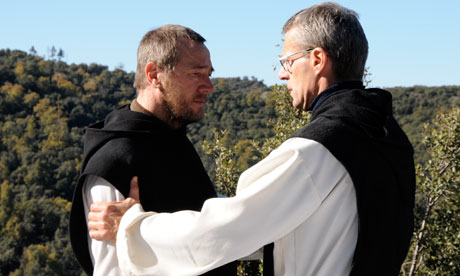
Back in the autumn, I posted about building resilience. I think you'll notice that my proof-reading on that occasion was not up to much! Since then we've had the longest and worst winter of recent years, and I got the chance to test just how resilient I really was. Not so much, as it turned out!
The thing is, is isn't just about Being Prepared. Yes, we were caught on the hop because the frost came so early - the garlic only went in last week, and I'm reliably informed that this means it will all run to seed, and I might as well not have bothered. The answer for next year is to plant them in pots. But that means having potting compost, but I didn't and the chances of getting to a garden centre in all that ice were something less than zero. Something else to be prepared for this year!
The thing is that our definition of being prepared has to change. We are used to 'just in time' ordering, so we're not stockpiling stuff like our grannies, and therefore having to create storage space, which we have to maintain and service. But just in time ordering doesn't mean less waste, it just pushes the waste down the line, so ther people have to stockpile, and deliver the small loads we need, or else we have to make extra trips, and so on - and, as we all found out, it makes the supply lines very vulnerable. If you could get to the shops the shops didn't have the stock, and if you were snowed in and ordered on line, the deliveries couldn't get through.
The other vulnerability I found was the domino effect. If I planned to do one thing, and if failed, or took longer I couldn't get to the next thing because it depended on having done the first - and so on through the day. Not only did I have a whole complex of jobs not done, but I was completely frazzled and frustrated, and frankly miserable.
A neat, sleek, efficient programme with all your tasks batched and your gaps time designated looks like a work of art on paper. And I've had a life full of distractions and derailments - you have no idea how satisfying it is to look at a plan for a week that is consistent and productive and creative after so many years being on call for everybody else. But it is a recipe for disaster.
A resilient system has to be resilient all along the line. We have to wire our systems in parallel, not in series. There's a downside to this - complexity.
Instead of getting all your stuff from one source (shopping, energy, water, employment) which will give you a good deal in return for commitment, we are going to have to mix and match. We're going to have to stop looking for 'magic bullet' solutions, too. No pesticides that wipe out everything that bothers us. We will have to learn to live with a predictable and manageable level of damage with the trade-off that it's better for all the other species on the planet, not just us. We will have to have power from a mix of different sources, with the trade-off that we'll never have to be totally without, even if it's less than we want.
But the big trade-off is that it sparks creativity. And creativiity is the happiest experience than a human being can have in this life. A happy harmonious planet makes for happy harmonious people. As without, so within.














